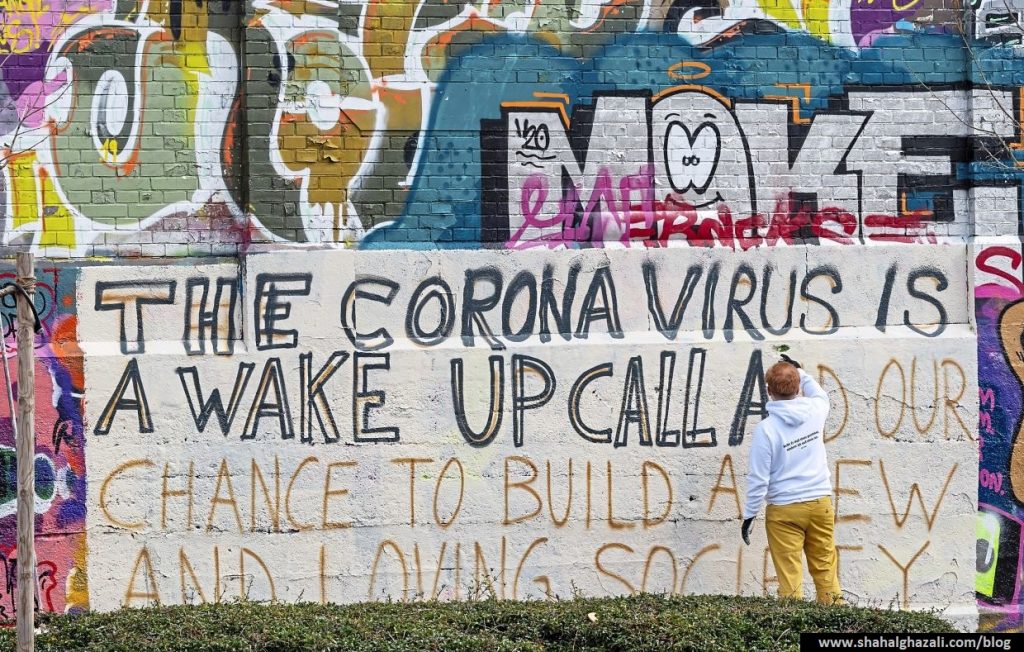
It has been almost seven (7) weeks as the Movement Control Order (MCO) in Malaysia has taken effect but already it’s clear that life will not return to normal soon. In fact, there has already been some significant and fundamental changes in the world and many of these will become permanent. When this health crisis abates, we will be in a new world. Here are some ways this new world will break with the past:
- Supply chains will be local rather than global. The tariff and trade wars had stretched global supply chains to breaking point. The virus pandemic broke those chains. Local companies will be loathe to trust all the supply from one foreign country or even from outside country will look to diversify their suppliers and to favor local suppliers, even at higher costs.
- Shop, work, and play online. Retailers with physical stores were already struggling to compete with online shopping. The shelter-in-place rules forced everyone to shop, work, or play online. As the last online laggards adjusted to online commerce, they will likely not go back. So in-store shopping and commercial real estate will take a hit long-term.
- Digital divide will become a chasm. Everyone shifted to working and learning online. Those with connectivity and technology jobs and skills could continue working remotely fairly unaffected during the shelter in place order. Access and ability to work online will become even more important and those who are unable to connect online, will fall further behind economically.
- Home-bias will increase dramatically. Economists have long known that we perceive higher risk the further away the threat is from us. It’s the fear of the unknown. Put it another way, we have a favorable bias and a perception of lower risk for what’s closer to home. Investors pulled back from investing overseas or out-of-state as travel was difficult during this crisis which prohibited proper due diligence. Investors are likely to revert to more investing closer to home.
- Healthcare for all becomes a more standard view. Before the crisis, universal healthcare was still considered a left-of-center view. During the crisis, there was unified view that free testing for all was critical in protecting everyone. As rich and poor got afflicted, it became clear that we need a good health care system, for all.
- Unemployment benefit is not just for the lazy. When unemployment was at 3.30%, it was hard to get anyone to support unemployment benefits or minimum wage. The perception was that only the lazy were unemployed or couldn’t support themselves financially. About 2.4 million jobs are expected to be lost in the impending economic recession created by the corona-virus pandemic in the country, said the Malaysian Institute of Economic Research (MIER). This became clear that there are economic gyrations that impact large swathes of people, regardless of their skills, abilities or work ethic. And not providing unemployment benefit for these who are caught in the wrong place at the wrong time, could crater the whole economy for all.
- Loss of trust will take time to recover. How long will it take before folks are comfortable going on a cruise again? Or when will homeowners feel comfortable letting a stranger into their house to rent it for a weekend? How long before countries with high infection rate will be deemed clear so their citizens can come visiting as tourists again? It will take some time. My personal guess is two (2) years or more.
- Insurance takes center stage. In the past, businesses often viewed risk mitigation and insurance as boring areas that reflected overly pessimistic views. This incredible unimaginable crisis is unfolding and causing tremendous damage to every sector every where in the world. Those who had contingency plans and robust risk planning are really benefiting. Risk management will become a core activity in the new world. Companies will actively develop and test contingency plans and look for insurance services to protect themselves. Hedging will not be viewed as an unpleasant cost but a wise necessity. Of course, insurance companies will also look to protect themselves and tighten their exposure.
After any prolonged period of crisis, there is a strong desire for rebirth and renewal. After a war, there is a post-war boom. The citizens of a country that has been at war are weary of death and destruction and with peace comes a second chance at life and a tremendous burst of creative energy and economy-building. There is pent-up demand for products and services; folks are eager to get back to work and to invest and to shop. Hopefully, that rebirth is also part of the new world.
______________________________
DO YOU WANT TO IMPROVE THE PERFORMANCE IN YOUR ORGANISATION?
If you are interested to learn the unique techniques and the easier ways of building your leadership skills for personal and also for your team, let’s apply for our Leadership Storytelling Training. We, at SAZ Diversify Legacy (SAZDL), will help to unleash your inner talent! This program is open for any type of businesses. For more information, you may visit our website: www.sazdl.com
Please CLICK HERE and fill the form to book our training and do not feel hesitate to contact us.
